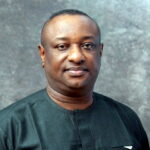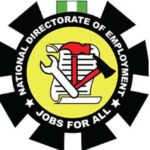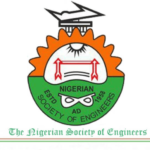Capt. Alkali Modibbo, the Rector of the Nigeria College of Aviation Technology (NCAT) in this interview with newsmen said industrialization of the aviation sector would bridge the skill gaps in the industry and curb unemployment among pilots, engineers and other skilled personnel. He speaks on other issues bothering the college.
About three years ago, NCAT was upgraded to a regional training centre of excellence (RTCE), while NCAA endorsed it as an Approved Training Organisation (ATO). What has changed in the institution since the upgrade and the approval?
- Meet twin stars making waves in Hausa entertainment sector
- IBB: How Abacha deceived activists, prominent Nigerians to get into power
This is an Approved Training Organisation (ATO) and we have been having renewals yearly and the Regional Training Centre of Excellence (RTCE) is a certification by the International Civil Aviation Oragnisation (ICAO). The benefit of this certification is that we can increase training activities like the ICAO training courses, conventional courses in the college. In 2021, we had over 50 courses conducted in this college in spite of the Covid-19 pandemic and we are still doing those courses. That will give us more visibility internationally and locally by having the RTCE. You cannot train if you don’t have the reviewer of the ATO. So, these are the benefits of the RTCE and ATO.
How do you think the issue of unemployed pilots and engineers can be resolved to create more jobs for qualified personnel?
I always say the college is for experience and knowledge. If we take in students, after a certain time, they are delivered to the public as graduates. At the end of the training, some will be pilots, engineers, cabin crew, air traffic controllers and others. When you go out as a fully graduated person with the certificate, you look forward to getting a job. The only way to get a job as a pilot or an engineer is to get more aviation industrialization by having more airlines, ATOs and can also work in the agencies and the ministry as a pilot or an engineer. It is not necessary that you must fly or repair an airplane. You can work in any of the agencies as a pilot.
If you look at Capt. Rabiu Yadudu, the Managing Director of the Federal Airports Authority of Nigeria (FAAN), he is a pilot. The immediate past Managing Director of the Nigerian Airspace Management Agency, Capt. Fola Akinkuotu, was a pilot and the same applies to Capt. Musa Nuhu, the Director-General of the Nigerian Civil Aviation Organisation (NCAA). Also, the current Commissioner of Accident Investigation Bureau, Engr. Akin Olateru, is a pilot, and several others.
So, jobs are out there, pilots and engineers should not limit themselves to only flying or repairing aircraft. The aim of every pilot is to fly, but when jobs don’t come, you can work in any of the agencies or the Ministry of Aviation. We look forward to the Federal Government opening more opportunities to aviators. Sen. Hadi Sirika, the Minister of Aviation, has the love of aviators in his heart and he has been doing great things to ensure that the aviation industry moves to the next level, especially if you have your own national carrier, even though it is not going to be 100 per cent governmental, but that will give room for more employment, more competition with other airlines.
What are your priorities in the year 2022?
We are going to try as much as possible to conduct more training locally and internationally and we intend to get the certification of the automatic rescue firefighting training provider certificate from the NCAA. Also, we are working on the B737 equipment certification. It is taking us longer than we intended, but we will try all our best to ensure that by March this year or April, we will have the B737 simulator equipment and put it to use.
To what extent do you intend to harness partnerships under your watch to move NCAT forward?
No man is an island. Partnership is our second name; we will always partner with organisations in order to move forward. We are a full member of the International African Association for Approved Training Organisations (AAATO) and other international associations. Also, we partner with all the agencies under the ministry, military, paramilitary organisations and others. We partner with them and we also send our people to these organisations to be trained on some of their technologies.
Even with the airlines, we work hand in hand; as a training institution, we cannot be on our own. Every airline and organization that has anything to do with aviation, come here and get trained. We also send our people out to get more knowledge and information.
In terms of partnership with the agencies, they are our number one customers. Some of those courses they were sending their staff to do outside the country are now being done here at NCAT. There are courses we run for NAMA, which is our number one client. They are always here year in, year out. Also, the NCAA, and FAAN come here for one training or the other.

 Join Daily Trust WhatsApp Community For Quick Access To News and Happenings Around You.
Join Daily Trust WhatsApp Community For Quick Access To News and Happenings Around You.


